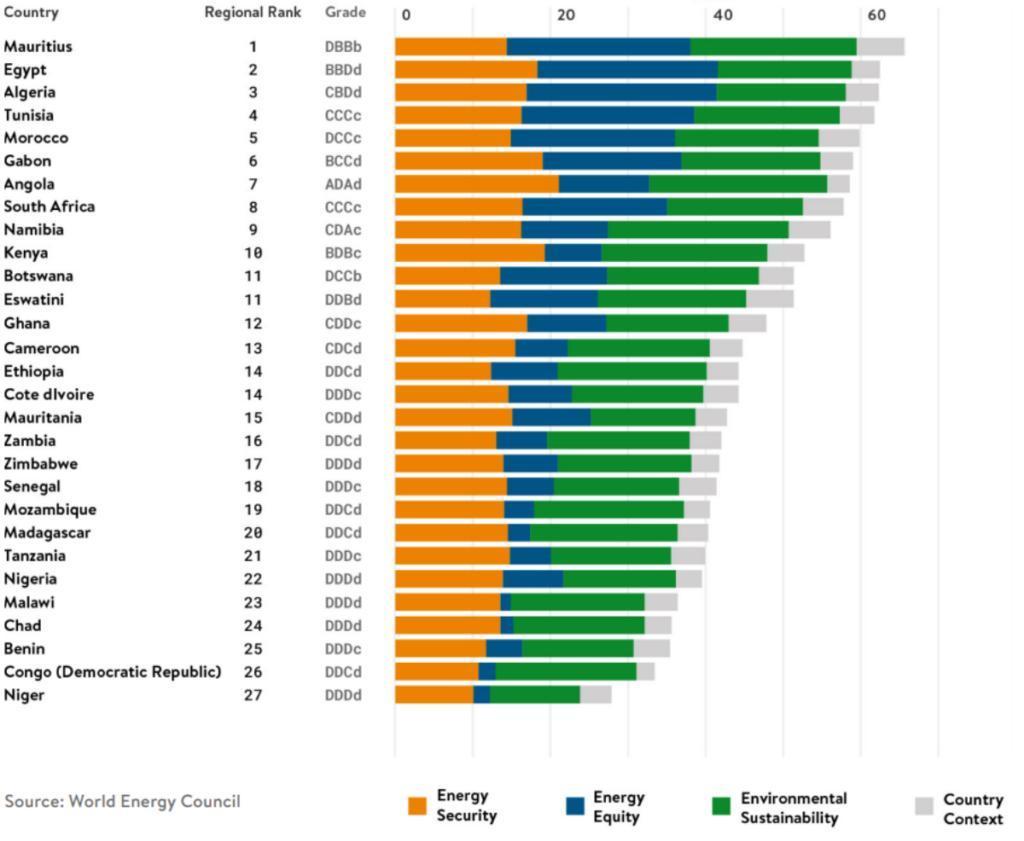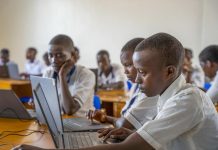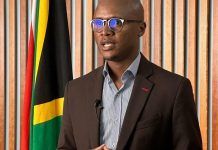Africa-Press – South-Africa. South Africa has fallen five places to 69th in an annual global energy systems ranking by the World Energy Council (WEC).
The 2023 World Energy Trilemma Report‘s features its annual Energy Trilemma Index, which measures the energy security, equity and environmental sustainability of 126 countries’ energy systems.
“The Index serves as a resource for policymakers, energy leaders, and financial sectors, highlighting opportunities for improvement and facilitating comparisons of energy performance over time and across countries,” said the WEC.
Note that the ranking goes up to 99 as numerous countries had the same scores, and thus shared positions.
Top and bottom spots
The global rankings are topped by Denmark (up from third in 2022), Sweden, Finland, Switzerland and Canada respectively.
The countries occupying the bottom five spots are Malawi, Chad, Benin, the Democratic Republic of Congo, and Niger.
South Africa placed at 69th (down from 64th in 2022), just below Lebanon. It scored relatively equally across energy security, energy equity, and environmental sustainability – boasting a C grade for each.
Part of this drop can be attributed to the country’s record 6,947 hours of power cuts (load shedding) experienced in 2023.
Looking at the African regional rankings for energy systems, Mauritius occupies the top spot, with South Africa placing 8th.

South Africa’s commitment to net zero
The report largely referred to South Africa’s government’s decision to begin working towards carbon-neutral energy sources.
At the end of 2023, the South African government put pen to paper at the United Nations Climate Change Conference (COP28) in Dubai, agreeing to begin moving away from fossil fuels by ramping up renewable energy and achieve net zero by 2050.
Government has outlined their policy of a Just Energy Transition where it would obtain financing to develop renewables.
Several nations, including Germany, the US, the UK, Spain, Denmark, the Netherlands and France, have pledged around $11 billion (R207 billion) to South Africa for a Just Energy Transition (JET) Partnership over the past two years.
The South African government is also currently working with the World Bank to facilitate a transition to a low-carbon economy through a $1 billion Development Policy Loan.
The loan from the World Bank has been said to be used for the restructuring of Eskom, including unbundling and redirecting resources to maintenance and upgrades, and incentivizing private investment in renewable energy.
The WEC said that for the country to effectively realise its commitments to an energy transition to a low-carbon economy, it needs to continue driving increased private sector financing and investment through “supportive policies, growing demand, cost reductions in renewable energy, and access to financing.”
“In South Africa, changes in the Energy Regulatory Authority (ERA) have increased accessibility to renewable energy… in August 2021, the capacity threshold requirement was raised from 1MW to 100MW, resulting in a notable surge in renewable projects related to commercial and industrial sectors,” said the WEC.
“[E]rasing licensing and registration requirements has [and will] contribute significantly towards making renewable energy more accessible to businesses and energy-intensive industries…. as well as a more feasible and strategic investment,” the council added.
Net zero not as easy as it seems
South Africa currently relies on coal-fired power to supply about 72% of its energy needs, which is catching up to it as coal plants fail.
“But switching to renewable energy technologies is not that simple,” wrote senior lecturer at the African Energy Leadership Centre at Wits University, Steven Mathetsa.
“Renewable energy also has strengths and weaknesses – while wind and solar are environmentally friendlier, they cannot supply electricity consistently unless they have large-scale storage systems,” said Matetsa.
The Department of Mineral Resources and Energy recently published a draft Integrated Resource Plan – with the updated energy blueprint envisions more than 100 gigawatts of new generation capacity being built by 2050 through various means.
“I believe that the country should select an energy mix of nuclear, gas, renewable and coal,” said Mathetsa.
“Electricity should, however, be clean, affordable, and reliable [which] suggests that the [recently introduced] Integrated Resource Plan should provide a platform for South Africa to reduce its reliance on coal and diversify its sources,” he added.
For More News And Analysis About South-Africa Follow Africa-Press






